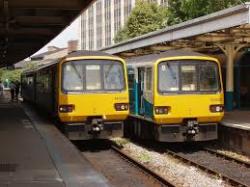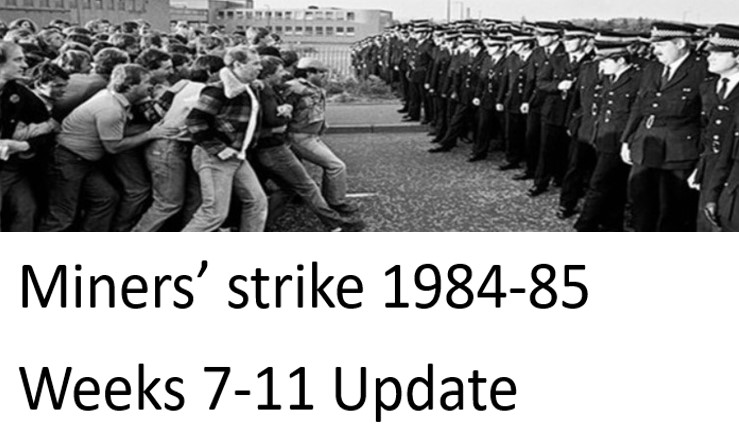By Andy Fenwick, Worcester South Labour Party
As I was doing the weekly shop in Tesco my eyes were caught by a glossy magazine, “Rail Liveries The Privatisation years”. Yes I’ll admit it, I am a railway nut and I will take my grandchildren to Heritage Stream Railway sites from the North York Moors to Severn Valley. I confess to being impressed with these leviathans of engineering. However, this journal was more than an outline of the colours painted on trains because within it was a bible of privatisation failure.
Since the 1996 privatisation of the railways, 101 rail franchises have come into existence, with the majority failing and needing to be bailed out. What is shown is that the promise of privatisation was just a smoke screen: the promised new rolling stock never materialised and the majority of track vehicles are from the British Rail era with a new lick of paint.
An example of the old disguised as new is the Grand Central franchise that was started in 2000 by a group of ex-BR mangers, although it did not start operations until 2007 with a Sunderland to Kings Cross service. The locomotive units for this route were leased: the ‘new’ and ‘innovative’ trains were none other than the British Rail designed ‘125’ from the late 1970s, re-labelled HST (High Speed Train).
Despite its name, because of the multitude of users on the tracks this ‘high speed’ train was slower than its predecessor 125 in the 1970s. In 2014, after a period of poor performance the HSTs operated by Grand Central were refurbished and gained a new impressive livery of Black and Gold to win back customers.
Rebranding to hide the truth
Northwestern Railway, which took over the franchise from London Midland has just slapped on a new coat of paint to hide the most bizarre trick on the travelling public. These wizards of capital did not invest in new rolling stock but bought second hand London Underground carriages to operate on the Bletchley to Bedford line.
All we have seen across the country is rebranding to hide the truth. Another example of this is the franchise that covers the old BR Regional Railways North East which operate along the North East coast and the Trans Pennine route to Liverpool. The area was privatised in 1998, with a bus company MTL taking the franchise and operating as Northern Spirit. In 2000 the franchise was sold to Arriva Trains but six years later Serco/Abellio took it over as Northern. In 2016 it returned to Arriva but keeping the Northern name, with, you guessed it…a new lick of paint.
A diesel locomotive set commonly used for commuting is the 30 year-old Pacer, which remain the main stock of many, mainly north of England, rail franchises. These units are hated by commuters because they are always crowded and while in summer passengers have to suffer the hot, unventilated carriages, in winter a journey they have to be endured in cold, damp conditions.
Passengers sold down the river
Northern Rail is failing to meet its timetable performance with only 53.5 % of its trains now operating on time. The RMT has called for Northern Rail to be stripped of its franchise with general secretary Mick Cash saying that passengers have been “sold down the river”.
“There can be no more warnings, no more second chances and no more special measures. The time has come to sweep the national embarrassment of the Arriva Rail North franchise off the railway for good with the whole operation brought into permanent public ownership,” he said. “This company has failed on an epic scale with the connivance and protection of the Tory government. The game is clearly up and we need to draw a line and get a public sector operation swung in sharpish. We know it is tooled up and ready to go so why the delay? Not only has this Arriva Northern outfit sold passengers down the river but they are also allowing their contractors to get away with imposing poverty pay on their staff. It is a disgrace and RMT will be jacking up the pressure on all these racketeering, basket-case train companies over the coming months as the fight for a public railway ratchets up a notch.” Press releases have constantly announced the replacement of these carriages in the near future but that future never arrives.
The large number of franchises can be confusing, but in reality it can be boiled down to a few holding companies like Virgin, First, National Express, Stagecoach, Prism and Serco, along with (ironically) a few European state-owned national railway companies. The failure of a franchise is often announced in the media with a great deal of wringing of hands and a fanfare for the new franchise, in reality one the holding company takes over the franchise with all the same infrastructure only to fail again. How can we trust companies that have got fingers in so many privatisation deals. Serco, for example, is involved in PFI contracts in hospitals, schools and prisons; these are just venture capitalist picking the bones of once publicly-owned services.
BR attracted 30% more passengers
Why is franchising such a problem? We are told that British Rail was in constant need of government aid but written into the franchise contracts are government grants greater than the aid given to BR. British Rail was supposedly a failure in that it could not attract customers, but in the year after the 125 was introduced British Rail enticed 30% more passengers.
Since the decline of major industries like steel, shipbuilding and chemicals where the workforce lived on the doorstep of their employers, the workforce in Britain has to commute greater distances than ever before and therefore rail passengers have inevitably increased.
What have also lost with privatisation are our overnight trains. Me and my Davey would buy an all-Britain Rover Ticket for a week’s holiday, stopping off in Thurso in the north of Scotland then to Penzance in Cornwall, all using night trains as our “Hotel”. Today, you cannot rest even in station rest rooms and when my journey was broken by an overnight stopover in London, I was kicked out of Euston Station waiting for 05.30 train.
Four alternative train companies
Since privatisation, routes have become the sole preserve, so when repair is needed on a stretch of line the protocols of track maintenance will not allow another company to use an alternative route. Where I live I have four alternative train companies vying for my custom to take me to London, but unlike in BR days where your ticket would allow you to go on an alternative route, you have to wait for a specific coach.
An even bigger problem with privatisation is not just passenger traffic but rail freight. Eight companies are competing for rail freight, from the large multi-haul goods trains that carry steel, oil, cement, etc to mixed-freight, which is specialised and needs a road transport fleet to start and finalise the journey. So we have companies chasing contracts and it all ends up slowing down passenger traffic.
The Tories did not stand in the way of the nationalisation as the post-war train companies had been run into the ground without investment for 15 years and capitalism needed a transport system to move goods and people to fuel the post-war boom. However, the Tories wanted to manage the quiet demise of railways and replace it with road investment, especially motorway building. To this end, in the late 1950s and early 1960s, the Tory Transport Minister appointed Dr Beeching as head of BR to bring his axe down on 1,434 stations and 5000 miles of rail track, without any regard to the communities that would cut off and isolated.
However, by 1970 it was realised that an alternative was needed to the wholesale closures and the Tory strategists to retain long haul routes in preparation for privatisation.
Reversing the Beeching cuts?
This was to come like many nationalised industries after massive public investment in the 2019 general election Boris Johnson has now promised £500 million to reverse the Beeching cuts and to restore services to towns that were cut off from the rail network. This is not likely, because the Tories still have a hatred of railways. On a recent Channel 5 TV program on the development of the 125 train, it was said that Margret Thatcher never took a rail journey in her life, and that’s not surprising, considering that her husband made his millions from shoddily-built motorway construction. No substance or credence can be given to the Johnson pledge, because, according to experts, it can take up to £500m just to reinstate 25 miles of track.
What is required is for all transport to be brought under a national plan of public ownership with a commitment to integrate rail, road, river and air transport, giving all currently isolated communities affordable public transport links, with the electrification of all public transport to reduce CO2 emissions. Transport is a public social need not a private greed and that principle has to be at the core of Labour Party policy.
January 1, 2020



